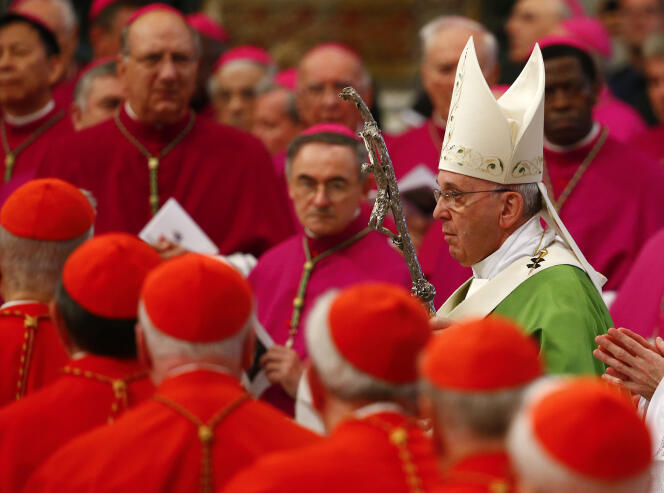


The Catholic Church may have reached a decisive juncture in its long history. The general assembly of the Synod on the future of the Church, sometimes dubbed the "Synod on Synodality," will take place in Rome from October 4 to 29. The agenda, unveiled in July by the Vatican, includes some of the most taboo subjects in the Catholic world, including the governance of the Church, the status of priests, women's role in the Church, welcoming remarried divorcees and LGBT+ people and sexuality.
The assembly in Rome will be the last stage of a vast process launched in 2021 by Pope Francis, during which the faithful in dioceses around the world were called upon to voice their opinions on the Church's future. It should be followed by a new general assembly in Rome in the fall of 2024, which will discuss possible follow-ups and most likely a final text from the pontiff.
In October 2023, 365 persons from every continent will be meeting to discuss these issues, including 96 non-bishops and 54 women. While this contemporary version of the Catholic synod features many new aspects, it is part of the long history of synodality, a term that has not always meant the same thing but whose goals have remained more or less the same over the centuries: To answer the question of who should make the major decisions within the Church, in a careful balancing act between "God's people," the pope and the prelates.
Etymologically, the word first appeared in a Christian context and probably comes from the combination of the Greek words sun and odos, which, put together, mean "to journey together." According to tradition, synodical practice is inspired by the biblical accounts of Pentecost or the famous "Jerusalem assembly," when, according to the Acts of the Apostles, the first Christians, starting with Peter and Paul, debated the status of non-Jewish converts.
The term "synodos" first appeared in the writings of Dionysius of Alexandria, who used it to designate Christian assemblies in Iconium and Synnada (present-day Turkey) that were held around 230. But its meaning was still unclear. In the writings of some Church Fathers, the word was sometimes used to designate the Church as a whole or even, as in the writings of John Chrysostom (c. 344-407), any gathering of the faithful practicing the Eucharist.
The term gradually came to refer to the assemblies of the faithful debating the future of their community, which emerged from the earliest days of Christianity, mainly in Palestine and Asia Minor, and often under the aegis of one or more "episkopoi" (from which "évêque," the French word for bishop, comes from). These guardians of the dogma were recognized by the faithful as possessing special gifts justifying their authority. The first proceedings (convocation, conduct of debates, consultation, and so on) documented by Bishop Cyprian of Carthage (circa 200-258) attest to the direct influence of the debates at work in the Roman Senate or the municipal councils of the empire's provincial capitals.
You have 72.05% of this article left to read. The rest is for subscribers only.
